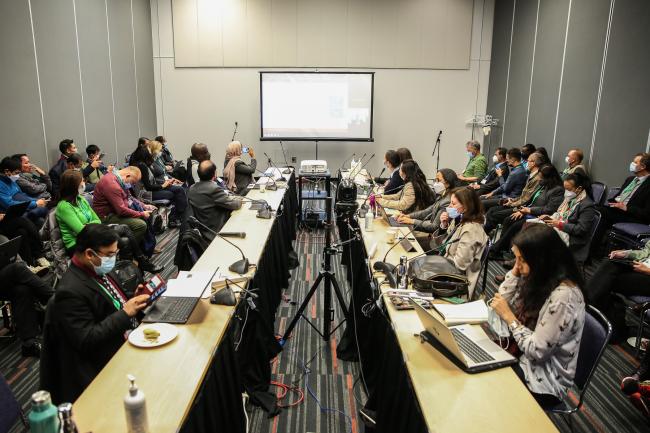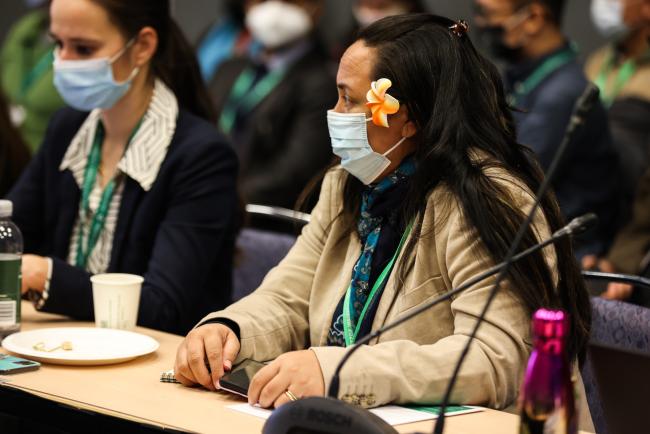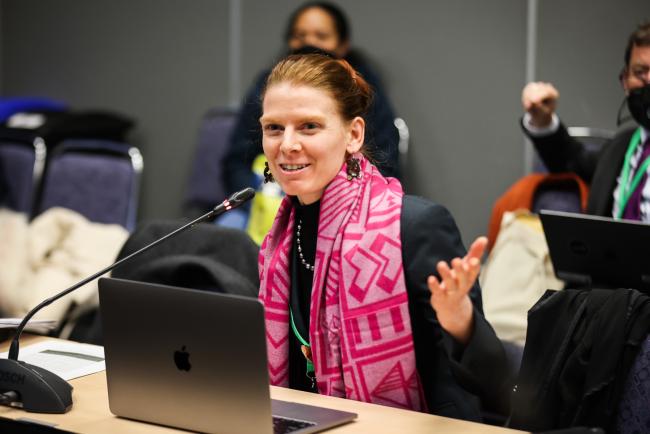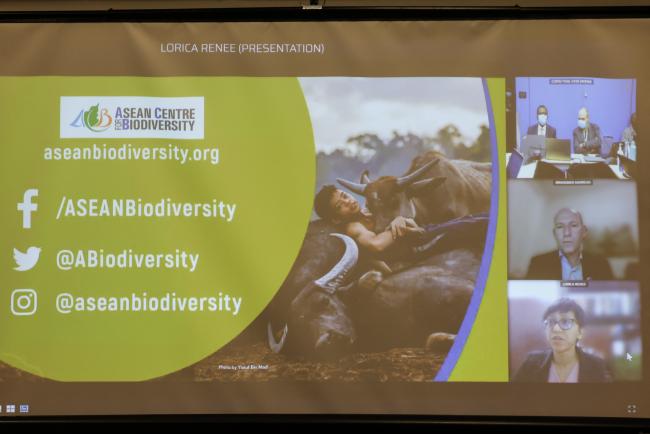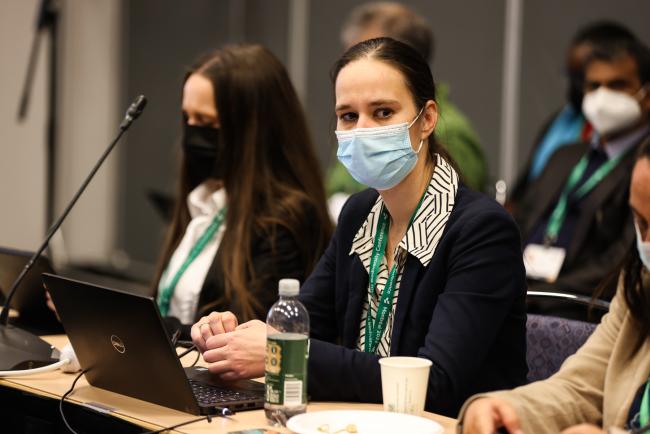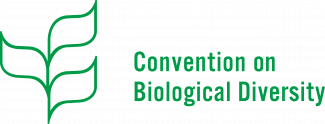About
The overall objective of the Knowledge Management for Biodiversity Initiative is to support effective implementation of the global biodiversity framework by fostering effective knowledge management to enable biodiversity planning, policy formulation, decision making and implementation processes.
The CBD Secretariat is planning a Knowledge Management for Biodiversity (KM4B) Initiative that encompasses activities, projects, programmes, and partnerships to facilitate implementation of the knowledge management component of the post-2020 global biodiversity framework (GBF) by Parties and stakeholders. The overall objective of the KM4B Initiative is to support implementation of the GBF by fostering knowledge management to enable biodiversity planning, policy formulation, decision making, and implementation processes. The initiative further aims to build capacities for Parties to help them identify their knowledge management needs, gaps, challenges, and opportunities, as well as elaborate appropriate national KM policy frameworks and practical tools and solutions. Additionally, it aims to enhance synergies and collaboration among biodiversity-related conventions and organizations on knowledge management and encourage and support Indigenous Peoples and local communities (IPLCs) and other stakeholders (including the private sector) to create their own collaborative networks and knowledge exchange programmes.
This side event provided an opportunity for partners to learn about the KM4B Initiative and discover how they will be able to participate in and contribute to its proposed projects.
Erie Tamale, for Neil Pratt, CBD Secretariat, introduced the event, and expressed hope that the 15th meeting of the Conference of the Parties (COP 15) would adopt a decision on knowledge management to support the GBF, and noted the KM4B Initiative is working with a number of other initiatives, including PANORAMA and the UN Information Portal on Multilateral Environmental Agreements (InforMEA).
Introducing the KM4B Initiative, Tamale said it was conceived by the Secretariat and is currently still under development, noting its aim of understanding the knowledge needs and gaps that Parties identify, and that it will begin at the regional level. He explained that it will work to strengthen the human resource capacity for knowledge management, including through a dedicated 12-week intensive online course. He said that after the initial training, knowledge management challenges will be organized, targeting the co-creation of regional solutions to address knowledge management needs and gaps identified. He highlighted the need to promote collaboration and synergies as far as possible, noting much work is being done, including by observatories, and that these must be mapped and put into the public domain.
Andreas Brandner, Executive Director, Knowledge for Development Partnership (K4DP), introduced K4DP as an international multistakeholder partnership to advance knowledge for development, connecting more than 2000 partners and representing all the Sustainable Development Goals (SDGs). He underscored that the Partnership works to, among others: address the knowledge divide; provide evidence of the knowledge ecosystem; strengthen knowledge dissemination and communication; and foster cooperation for investment in knowledge. He called attention to the Biodiversity Knowledge Management Framework, which will strengthen implementation, and spoke on the KM4B Challenge, explaining that trained knowledge managers will be expected to work together to provide solutions to the Challenge presented.
Julia Oliva, UN Environment Programme – World Conservation Monitoring Centre (UNEP-WCMC), presented on the new Global Knowledge Support Service for Biodiversity, sharing that for GBF implementation, increased scientific and technical information is needed. She said that UNEP-WCMC is working to understand the biodiversity-related knowledge needs and gaps, including the gap between data and action. She said the Service aims to help Parties to, inter alia, scale up collaborations at the national, regional, and international levels. She welcomed the partnership with KM4B, noting the Service would be able to contribute knowledge and expertise to national biodiversity agendas.
Paola Ridolfi, Global Environment Facility (GEF), presented on good practices and lessons learned from the GEF Knowledge Management Initiative, stating that the eighth replenishment cycle of the GEF (GEF-8) also has a focus on biodiversity. She said that, through a learning assessment, the GEF is working to better leverage knowledge across the Facility and across processes. She welcomed the Partnership, and pointed to new ways to collaborate, noting the GEF is introducing a comprehensive approach to knowledge management and learning.
Marie Fischborn, International Union for Conservation of Nature (IUCN), and Helga Mahler, Deutsche Gesellschaft für Internationale Zusammenarbeit GmbH (GIZ), presented on PANORAMA – Solutions for a Healthy Planet Initiative. Mahler noted that PANORAMA is qualitatively managing and harvesting knowledge from across sectors and highlighted that it is also a platform for peer-to-peer exchanges and knowledge sharing on solutions. She stressed that the most important people in the network are the over 850 experts who share information. Participants watched a video on PANORAMA, which shared stories from experts on the ground working to implement solutions in the communities around them. Fischborn welcomed the opportunity to collaborate with KM4D in the support of knowledge “that comes from practice.” She said that a memorandum of understanding (MoU) with the CBD will help support knowledge sharing to enable cross-sectoral learning and knowledge solutions, as well as practical solutions on the ground to implement the GBF.
Renee Lorica, Association of Southeast Asian Nations (ASEAN) Centre for Biodiversity (ACB), noted the ACB has developed tools to ensure biodiversity information and knowledge in the region is effectively disseminated, including through the ASEAN Clearinghouse Mechanism, the ASEAN Biodiversity Dashboard, and the ASEAN Biodiversity Outlook. She highlighted some challenges related to data availability, language barriers, and lack of interoperability, among others, and welcomed additional partnerships with relevant organizations.
In the ensuing discussion, participants considered, among others, the need to also respect knowledge that is “on the fringes,” including the science and knowledge of Indigenous Peoples, especially in island communities, the extensive knowledge under the Global Biodiversity Information Facility (GBIF), and further partnerships with the UN Development Programme.
Organizers: CBD Secretariat
Contact: Erie Tamale, CBD Secretariat erie.tamale@cbd.int
For more information: https://www.cbd.int/km/


